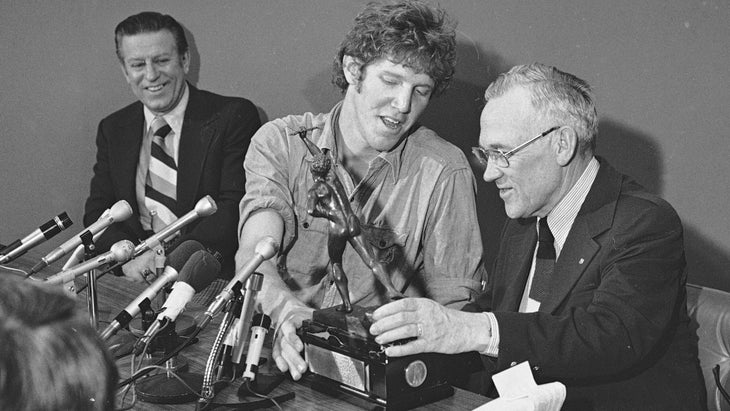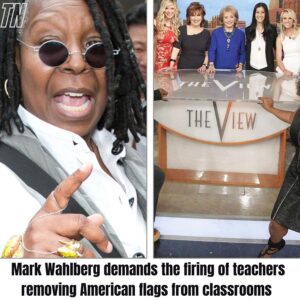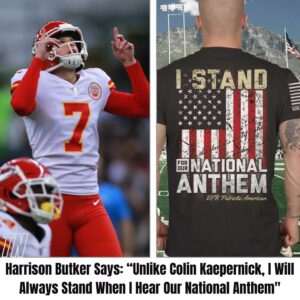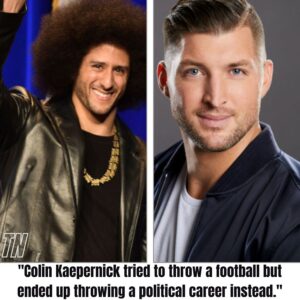
Caitlin Clark was honored with the prestigious James E. Sullivan Award on April 23 by the Amateur Athletics Union (AAU), recognizing her as the top amateur American athlete at the collegiate or Olympic level. The AAU, boasting over 800,000 members, prides itself on promoting inclusivity in sports under the motto “Sports for All, Forever.” Clark, 22, earned the distinction for her exceptional performance and impact on women’s collegiate basketball during her remarkable journey to the NCAA finals with the University of Iowa, marking her second consecutive win.
Despite Clark’s deserving accolades and her dedication to inspiring young female athletes, the irony lies in the award’s namesake, James Edward Sullivan. Sullivan, who founded the AAU in 1888 and passed away in 1914, held staunch opposition to women participating in sports, a sentiment that contradicts the AAU’s mission of inclusivity. In his writings and actions, Sullivan expressed sexist views, dismissing the role of women in athletics and vehemently opposing their involvement in prominent athletic events.
Sullivan’s discriminatory stance against female athletes persisted, influencing the landscape of sports during his tenure and hindering opportunities for women to compete at the highest levels. Notably, athletes like American diver Ida Schnall voiced frustration over Sullivan’s objections to their participation in events such as the Olympic Games, citing gender-based discrimination as a barrier to their athletic pursuits.
Despite calls for reconsideration of the award’s name in light of Sullivan’s controversial legacy, the AAU has yet to initiate a public discourse on the matter. While Clark joins a prestigious list of Sullivan Award winners, including renowned athletes from various disciplines, the discrepancy between the award’s namesake and its recipients underscores the complex history of gender inequality in sports and the ongoing efforts to promote inclusivity and equality in athletic pursuits.

James Edward Sullivan, known for his formidable presence and influence in early twentieth-century amateur athletics, held significant power as a leader in the sports community. Rising from humble beginnings in New York City, Sullivan’s athletic prowess and editorial skills propelled him to prominence within the Amateur Athletic Union (AAU), where he served as a key figure in organizing American Olympic teams for several Games.
However, Sullivan’s legacy is tarnished by his discriminatory beliefs and actions. Notorious for his staunch opposition to women’s participation in sports, Sullivan’s views clashed with the AAU’s mission of inclusivity. He infamously revoked gold medals and disregarded world records, imposing his authority over hundreds of regional sports clubs.
Sullivan’s controversial tenure extended beyond sexism to include racially charged events like the 1904 Olympics in St. Louis, where he orchestrated the deplorable “Anthropology Days” experiment. This eugenics-driven spectacle aimed to showcase the supposed athletic superiority of white Americans over indigenous participants from around the world.
Despite criticisms of his views, Sullivan’s influence persisted, inhibiting women’s participation in Olympic events until his death in 1914. His legacy remains complex, with some praising his contributions to amateur athletics while others condemn his prejudiced beliefs.
While Sullivan’s achievements are recognized within elite athletic circles, his troubling views on gender and race are often overlooked. The AAU and the New York Athletic Club, which hosts the Sullivan Award ceremony, have yet to publicly address the controversy surrounding their founding figure.
News
Mark Wahlberg demands the firing of teachers who remove American flags from classrooms, saying it’s a disrespect to freedom and sacrifice.
Recently, actor and entrepreneur Mark Wahlberg has sparked intense debate across the nation with his bold statement demanding the immediate firing of any teacher who removes the American flag from their classroom. Wahlberg’s declaration that “The American flag stands for…
The View has become TV’s top sleep aid! After a ratings plunge, it’s the worst show on American TV!
In the ever-evolving world of television, few shows have faced the kind of dramatic downfall recently experienced by The View. Once a prominent platform for political and cultural discussion, The View has been dubbed the “worst show on American TV”…
Kid Rock stirred controversy with a message aimed at Garth Brooks: “True country stars love the flag! You can’t sing country if you don’t stand by it. Country music is about heart, soul, and patriotism.”
Country music has long been associated with themes of patriotism, tradition, and a deep-seated love for the American flag. Recently, Kid Rock made headlines with a provocative statement seemingly aimed at fellow country star Garth Brooks: “If you don’t love…
Harrison Butker declares, ‘I’ll always stand for our national anthem,’ taking a swipe at protests. Respect versus drama—Butker stands tall!
In the contemporary landscape of professional sports, athletes are often thrust into the center of societal debates, their actions and words echoing far beyond the fields and courts. Harrison Butker, a placekicker for the Kansas City Chiefs, recently reignited the…
We need fewer Kaepernicks and more Tim Tebows: “Colin Kaepernick tried to throw a football but ended up throwing a political career instead.”
In the realm of sports, athletes often become cultural icons, representing more than just their athletic prowess. Colin Kaepernick and Tim Tebow are two such figures, each embodying different ideals and values that have sparked widespread debate and divided public…
Breaking: Sheryl Swoopes Calls Caitlin Clark A “Bully” & Claims She Didn’t Really Break The NCAA Scoring Record In Hate-Filled Rant
WNBA legend Sheryl Swoopes took issue with the discourse every time Indiana Fever rookie Caitlin Clark is fouled and pointed to what happened Sunday with Chicago Sky forward Angel Reese. Reese clocked Clark on the head while Clark…
End of content
No more pages to load






